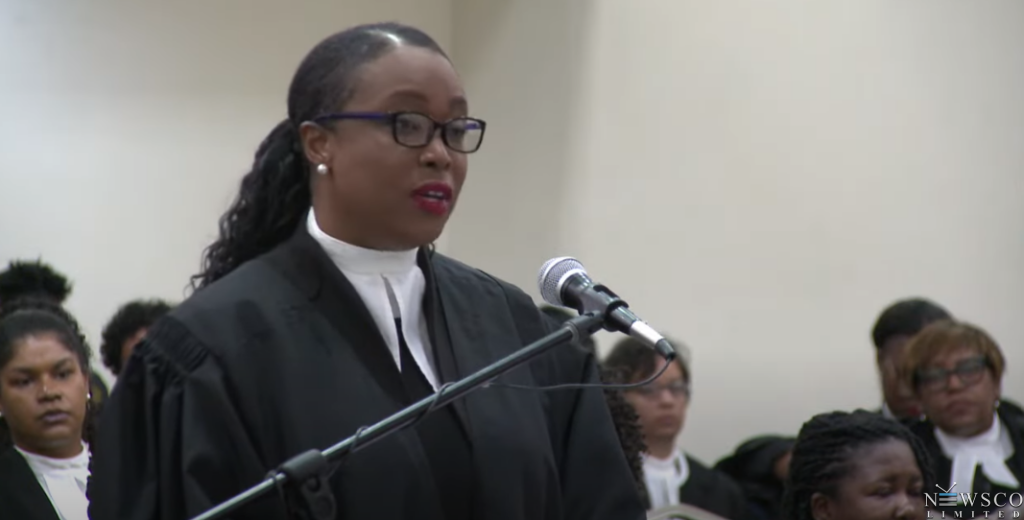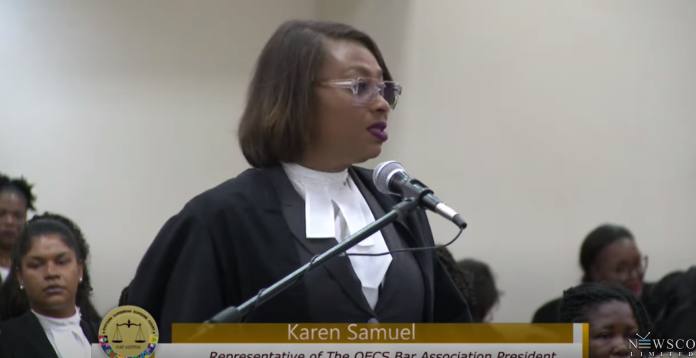Representative for the OECS Bar Association, Karen Samuel, expressed that the region’s legal aid services are in critical need of reform and called for the exploration of better alternatives to the government-funded legal aid.
Legal aid is a public programme aimed at giving advice and assistance to people who cannot afford to pay the full legal costs of a private attorney.
The service offered by governments is not free, and neither is any person entitled to legal aid, as assistance is granted based on need, circumstances and available resources.
At the Opening of the Law Year 2024, Samuel remarked that legal aid is the “hallmark of a fair and open justice system” as one’s ability to access justice should not be based on personal financial wealth.
“Legal aid is in crisis in the OECS, and it needs urgent reform to protect access to justice for the most vulnerable people within our society.
“The OECS Bar Association has, at the invitation of the Honourable Chief Justice [Dame Janice Pereira], commissioned a working group which has been tasked with exploring possible reforms and alternatives to government-funded legal aid,” she remarked.
Samuel noted that although the legal system in the subregion continues to grow, there is no time for complacency.
“We must be mindful of the changes and challenges that lie ahead, we must also reflect on how we, individually and collectively, might best navigate the future by reshaping the justice system and the practice of law,” she added.
Samuel also made note of the increasing challenges in protecting the mental well-being of lawyers and ensuring artificial intelligence (AI) is a “booster and not a buster.”
“We must ensure that generative AI is used responsibly and ethically, and we must be mindful of the need to protect data privacy, security and confidentiality while using generative AI,” she also remarked.
The theme for the new law year is ‘Innovation and Justice Reform- the ECSC looking to the future.’

At the ceremony held in Grenada, Antigua and Barbuda’s representative, Magistrate Veronica Thomas, who was also speaking on behalf of the OECS Magistracy, noted that solutions to the challenges faced by the region’s justice system can only come through pooling resources and “adopting a common and unified approach.”
Magistrate Thomas highlighted several successes in the legal service which have positively impacted the magistracy, including the rollout of the regional e-litigation portal.
“The e-litigation portal has truly revolutionised the way the court conducts business,” Thomas expressed.
Thomas also hailed the increasing use of technology in the courtrooms as allowing a blended approach to legal cases, especially dealing with vulnerable witnesses.
The Magistrate at the Family Division in Antigua and Barbuda also expressed eagerness for the conclusion of the Criminal Mediation Committee’s work, which could establish criminal mediation procedures in cases dealing with juvenile and child justice in particular.


